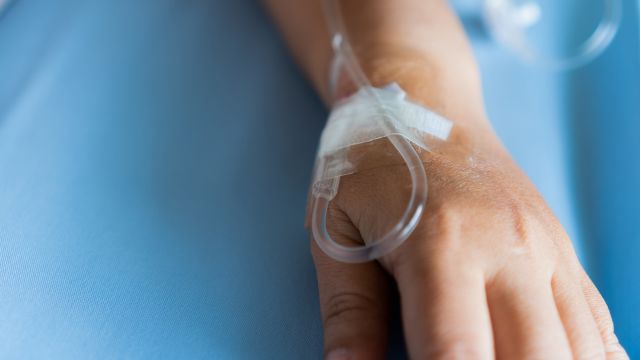Renal cell carcinoma is the most common type of kidney cancer. RCC begins with the growth of abnormal cells in the small tubes (tubules) in the kidneys, which filter waste from the blood and produce urine.
RCC is considered advanced when the cancer metastasizes (spreads) to surrounding organs and tissue. Advanced RCC typically spreads to the adrenal gland or nearby lymph nodes.
Local and systemic therapies
Treatment for advanced RCC will include systemic therapies and may also include local therapies.
Systemic therapies are treatments that travel through the bloodstream, attacking cancer cells throughout the body. This type of treatment is used when cancer has spread to sites beyond the initial tumor. Systemic therapies for advanced RCC may include:
- Immunotherapy. Immunotherapy drugs do not attack cancer cells directly. Instead, they help the body’s immune system recognize and destroy cancerous cells.
- Targeted therapy. This approach uses anti-cancer drugs that target cancer cells based on specific gene mutations or molecular pathways.
Chemotherapy is another type of systemic therapy used for many different cancers. However, for advanced RCC, it is found to have little effect in adults and is typically avoided.
Local therapies target specific tumors or areas of the body that are impacted by cancer. In the treatment of advanced RCC, local therapies may be used to help alleviate symptoms. Examples include:
- Surgery. Depending on the aggressiveness of the cancer, this may involve removing the entire kidney, part of the kidney, and/or surrounding tissue.
- Other procedures. Radiofrequency ablation, cryoablation, and microwave ablation are other options for local therapies. These are minimally invasive procedures that use high or low temperatures to destroy cancerous cells.
- Radiation therapy. This approach uses high-energy x-rays to destroy or shrink tumors. Radiation therapy may be used in cases where a person cannot have surgery or only has one kidney.
Clinical trials
Some people with advanced RCC may want to consider taking part in a clinical trial. Clinical trials involve testing medications and treatment methods and are an important part of the process of discovery and development of new treatments for cancer. If you would like to participate in a clinical trial for advanced RCC, talk to your healthcare providers, who can help you consider the potential risks and potential benefits of taking part in a clinical trial, and also help you find an appropriate clinical trial.
Making treatment decisions
Because RCC is different from person to person, treatment is also different. Your best source of information about your diagnosis and your treatment options are your healthcare providers.






